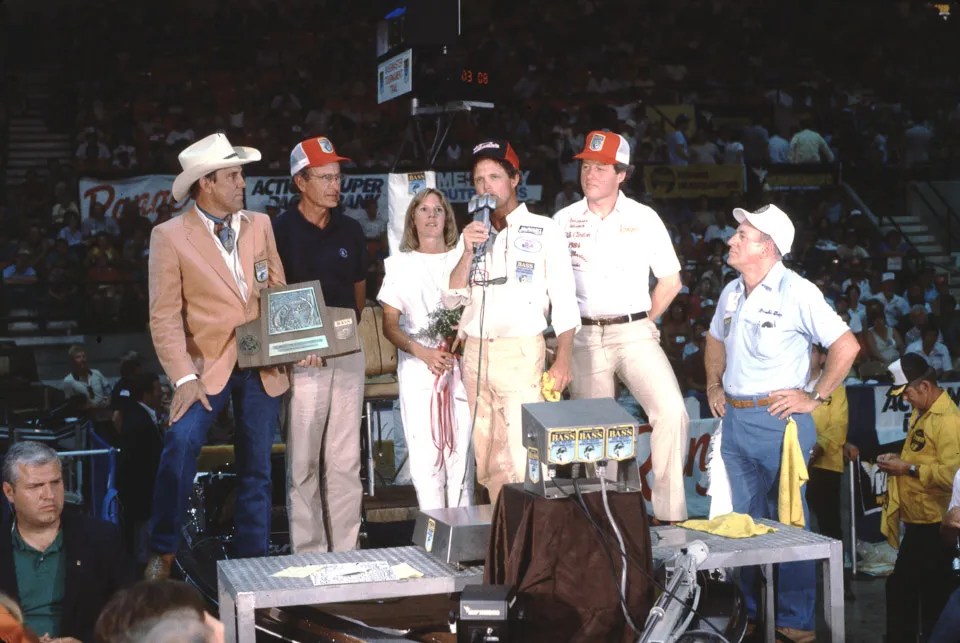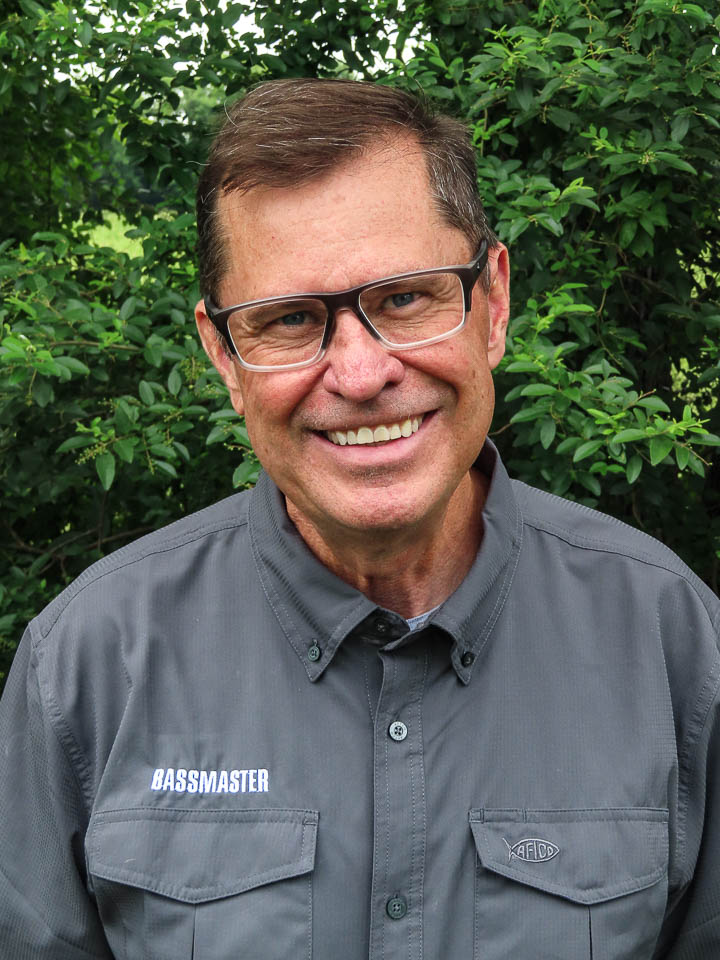
As a starstruck teenager I met Rick Clunn in my hometown of Nashville, where he won the 1977 B.A.S.S. Champs tournament on Percy Priest Lake. A chance meeting then turned into a now 47-year friendship that continues to be inspirational in my personal life and 40-year career.
Being an adopted member of his family — his daughters Brooke and Cortney early on lovingly called me their “big brother” — gave me a rare look behind the curtains that added another dimension to having a front row seat for their father’s remarkable achievements.
For two summers in the early 1980s I went fishing by day and crashed on the family sofa at night in the Clunn’s then modest rental house in Montgomery, Texas. Whenever the family passed through Nashville, I hitchhiked a ride with them to summertime Bassmaster events, riding in the back seat with Brooke and Cortney, practicing at the tournaments with Rick or his cousin, Randy Fite, while unknowingly working toward my lifelong career in this sport.
One night I discovered Rick wasn’t like Bill Dance, Roland Martin or any other pros of the day. While sleeping on the sofa, I was awakened by symphonic music softly playing from the record player. I barely opened my eyes to see the silhouette of Rick in his recliner. In the next vocal track, I recognized the voice of Neil Diamond — but he wasn’t singing ‘Sweet Caroline.”
The next morning, I discovered the music was from Jonathon Livingston Seagull, the movie soundtrack with lyrics by Diamond. Rick was also reading the book behind the movie that is a metaphor for breaking through a new plane of mental understanding, and specifically the nondualism around awakening of the true self. In simpler terms, the message is you can be much more than what you believe, or are given to believe.
That was my firsthand introduction to Rick’s journey to discover more about how the mind can control outcomes of events, namely tournaments. Whatever it was — I was an agriculture science major at the time, not a philosopher — the path took Rick to the highest level of his game.
In the 1980s, it seemed that Rick could win anytime, and especially when big money was on the line. He established the record for Classic wins, won the Red Man All-America, the U.S. Open on Lake Mead (which he called the “Iditarod of bass fishing,”) and other tournaments along the way.
Rick deep dived into self-visualization, transcendental meditation and studied philosophies like Zen, Hapkido and more. He studied Einstein and quantum physics to deepen his self-appreciation of nature while doing so through bass fishing.
Misunderstood and criticized by his peers, Rick shunned following the norm, choosing instead to blaze his own trail, and do it through a deep connection to nature — and bass fishing. That made me respect him even more.
This week, Clunn reaches a milestone that might never be replicated as he competes in his 500th Bassmaster event. I’m somewhere in the high 300s of my own tournament journey, and this milestone is one I’m looking forward in adding to my experiences with this wonderful family.
Another career milestone for me was getting to write and procure photographs for the “50 Years of Greatness” feature in the March issue of Bassmaster. Last fall, I spent two days with Rick and his wife Melissa at their home getting the interviews. What stood out to me was how Rick shunned the idea of 2024 being a “celebration” about his incredible career. He told me this:
“A celebration implies an ending to something, be it life or a career.”
That reminded me of one of the most profound of all Rick Clunn quotes that we can all use in our daily lives, regardless of age.
“Never accept that all your greatest moments are in the past.”





